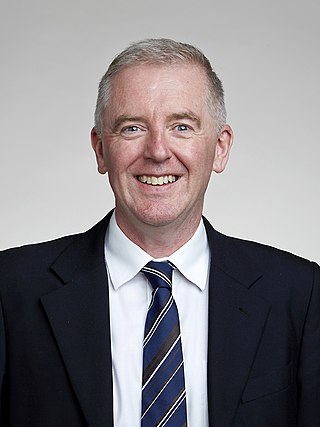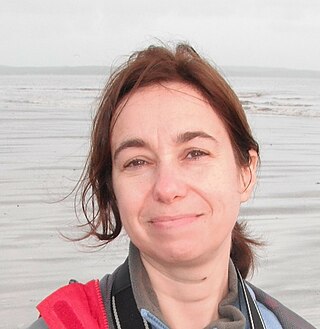
The cucumber is a widely-cultivated creeping vine plant in the family Cucurbitaceae that bears cylindrical to spherical fruits, which are used as culinary vegetables. Considered an annual plant, there are three main types of cucumber—slicing, pickling, and seedless—within which several cultivars have been created. The cucumber originates from the Himalayas, China, and Northern Thailand, but now grows on most continents, and many different types of cucumber are grown commercially and traded on the global market. In North America, the term wild cucumber refers to plants in the genera Echinocystis and Marah, though the two are not closely related.
The Science and Engineering Research Council (SERC) and its predecessor the Science Research Council (SRC) were the UK agencies in charge of publicly funded scientific and engineering research activities, including astronomy, biotechnology and biological sciences, space research and particle physics, between 1965 and 1994.

The Medical Research Council (MRC) is responsible for co-coordinating and funding medical research in the United Kingdom. It is part of United Kingdom Research and Innovation (UKRI), which came into operation 1 April 2018, and brings together the UK's seven research councils, Innovate UK and Research England. UK Research and Innovation is answerable to, although politically independent from, the Department for Business, Energy and Industrial Strategy.

Cucumis is a genus of twining, tendril-bearing plants in the family Cucurbitaceae which includes the cucumber, muskmelons, the horned melon, and the West Indian gherkin.
Christopher John Leaver is an Emeritus Professorial Fellow of St John's College, Oxford who served as Sibthorpian Professor in the Department of Plant Sciences at the University of Oxford from 1990 to 2007.

Melothria scabra, commonly known as the cucamelon, Mexican miniature watermelon, Mexican sour cucumber, Mexican sour gherkin, mouse melon, or pepquinos, is a species of flowering plant in the cucurbit family grown for its edible fruit. Its native range spans Mexico to Venezuela. Cucumis melo Agrestis and Cucumis callosus is cultivated as Chibber Fruit or Kachri in South Asia and can also grow as weed. Fruits are about the size of grapes and taste like cucumbers with a tinge of sourness. It may have been eaten by indigenous peoples before the European colonization of the Americas began.

Cucurbitacins are a class of biochemical compounds that some plants – notably members of the pumpkin and gourd family, Cucurbitaceae – produce and which function as a defense against herbivores. Cucurbitacins and their derivatives have also been found in many other plant families, in some mushrooms and even in some marine mollusks.

Tryptophol is an aromatic alcohol that induces sleep in humans. It is found in wine as a secondary product of ethanol fermentation. It was first described by Felix Ehrlich in 1912. It is also produced by the trypanosomal parasite in sleeping sickness.

Sir Mark Jeremy Walport is an English medical scientist and was the Government Chief Scientific Adviser in the United Kingdom from 2013 to 2017 and Chief Executive of UK Research and Innovation (UKRI) from 2017 to 2020. In 2023 he became the Foreign Secretary of The Royal Society.

Polly Louise Arnold is director of the chemical sciences division at Lawrence Berkeley National Laboratory and professor of chemistry at the University of California, Berkeley. She previously held the Crum Brown chair in the School of Chemistry, University of Edinburgh from 2007 to 2019 and an Engineering and Physical Sciences Research Council (EPSRC) career fellowship.

Steven M. Smith is Emeritus Professor of Plant Genetics and Biochemistry at the University of Tasmania in Australia and Chief Investigator in the Australian Research Council Centre of Excellence for Plant Success in Nature and Agriculture.
Wayne M. Becker is emeritus professor of botany at the University of Wisconsin and, under the name W. M. Becker, the original author, and for the next six editions, senior author of The World of the Cell (Pearson). Becker first joined the University of Wisconsin in 1958 and obtained his PhD in 1967. He received his B.S, M.S., and Ph.D in biochemistry at this college. Becker spent two years in the United Kingdom as a NATO/NIH postdoctoral researcher, and then returned to the campus in 1969 as a member of the Botany Department Faculty. He also spent a year in the same position at the University of Edinburgh.

Ian Alexander Graham is a professor of Biochemical Genetics in the Centre for Novel Agricultural Products (CNAP) at the University of York.

The carosello is a landrace variety of muskmelon found in Southern Italy. It is common in the Apulia region of Italy.
Research England is a part of United Kingdom Research and Innovation (UKRI) that oversees the functions of UKRI in relation to university research and knowledge transfer in England. This includes:
Richard Anthony Lewis JonesFInstP FLSW is professor of Materials Physics and Innovation Policy at the University of Manchester having been professor of physics at the University of Sheffield until 2020.

Pippa Goldschmidt is a British fiction writer, formerly based in Edinburgh, Scotland but now living in Germany.
Louise Heathwaite is a British environmental scientist. She is Distinguished Professor in the Lancaster Environment Centre at Lancaster University and Pro-Vice-Chancellor of Research and Enterprise. She is a hydrochemist working on diffuse environmental pollution, especially the pathways of nitrogen and phosphorus loss from agricultural land to water.
Elham Kashefi is a Professor of Computer Science and Personal Chair in quantum computing at the School of Informatics at the University of Edinburgh, and a Centre national de la recherche scientifique (CNRS) researcher at the Sorbonne University. Her work has included contributions to quantum cryptography, verification of quantum computing, and cloud quantum computing.
Leonid A. Sazanov is a professor at the Institute of Science and Technology Austria (ISTA). Sazanov research explores the structure and function of large membrane protein complexes from the domain of bioenergetics. These molecular machines interconvert redox energy and proton motive force across biological membranes using a variety of mechanisms.












